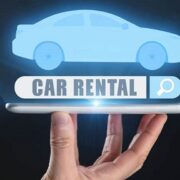For many Americans who live paycheck to paycheck, auto financing can be the only way to afford a new vehicle. If you’ve worked hard over the years to develop your credit profile and you have a significant limit on your credit cards along with a low running balance, there are ways you could save money by paying for your next vehicle with your credit card.
But before you head off to that car dealership in Avon, OH, do a little research and some advance preparation to make sure you manage your finances wisely.
Know the terms
Some types of credit cards, like certain AMEX accounts, have 30-day terms. This means you must pay the balance in full each month, though typically you pay no interest on the balance if it is kept current. The benefit of getting a 30-day reprieve on a large purchase can be compounded in at least two ways: if the card has a point-accumulating system, you may have just earned your way toward your next free vacation. Additionally, if you can find a beneficial rate on a one-month CD (certificate of deposit), you can potentially be earning a small amount of interest on that balance while you wait for your next bill to become due.
Sometimes, credit card companies offer special financing deals like “no interest for 12 months” on select purchases, and this can be an even better offer to take advantage of, especially if you have the full purchase price parked in some type of interest-bearing account. Occasionally there are ways to do a penalty-free balance transfer from one card to another as well, though this begins to push the limits of fiscal responsibility, especially if you don’t have the cash to make the payments.
Know the costs
If, for any reason, you are unable to pay your credit card balance within the expected window of time, your payments can balloon out of control, especially if the balance is several thousands of dollars accumulating at a 21 to 24 percent APR. Therefore, it’s best to have the money set aside in a safe place before incurring the debt to make sure your best-laid plans don’t run amok.
If for some reason you find you will not able to pay the credit card debt in a timely fashion, you could take advantage of a few other options, although most banking institutions would consider any transaction at this point an auto loan refinance or a secured personal loan, and these can come with higher rates and more limitations (if your bank even engages in these kinds of lending practices at all).
If you own a home, you can look at a refinance or HELOCS commonly offered by mortgage lenders. In this scenario, you borrow money against the equity in your home in order to pay off other debt. Mortgage rates are typically far lower than car interest and credit card interest rates, plus they are amortized over up to 30 years instead of the usual three to five years. This brings down the monthly payment of your debt by a significant amount and can make all the difference in keeping your credit score high.
One thing to note in this scenario, however, is that if you’ve done a bunch of shopping around— either for a car loan or for credit card companies in the months immediately preceding your mortgage loan application—your credit score may be temporarily lowered based on the number of inquiries on your credit report. If your score was high to begin with, this may simply mean that you don’t qualify for the lowest possible rate but rather a slightly higher rate associated with a riskier loan. However, if your credit was hanging on by a thread before, your score may not be high enough to qualify, and it can sometimes take several months to return to the pre-inquiry levels.
Purchasing a new car is an exciting process, albeit a bit stressful. Be sure to understand your finance situation and learn about the available purchasing options to get the best deal possible.
















Comments